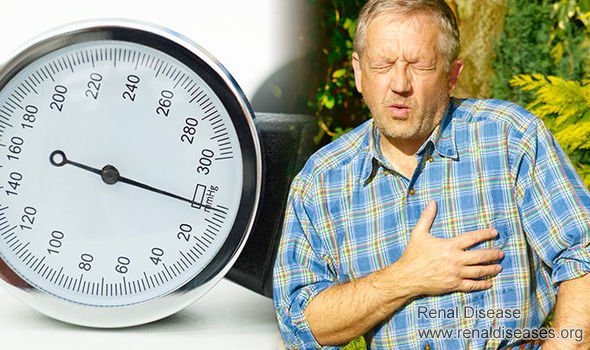Whatsapp: +8615512139310
- Email us:

As soon as blood pressure rises, the most worrying thing is cardiovascular and cerebrovascular diseases, which have high morbidity, disability and mortality. The second worrying thing is kidney damage, peripheral vascular damage, etc. And the longer the duration of hypertension, the higher the blood pressure, especially the systolic blood pressure, the larger the pulse pressure, the older the age, the greater the possibility of tissue and organ damage, the more likely to produce complications.
For different complications, drug treatment is the key, how to use drugs? How to use drugs most reasonably, safely and effectively? Doctors summarize the most common hypertension complications and the first choice of drugs. Here we will share them with you. You can check whether you take the right medicine.
1. Hypertension complicated with diabetes
Hypertension and diabetes are both harmful to the cardiovascular system, and hypertension is an important risk factor for cardiovascular and microvascular complications of diabetes mellitus. Therefore, it is recommended that patients with blood pressure greater than or equal to 140/90 mmHg should immediately start drug treatment on the basis of non-drug treatment, and patients with microalbuminuria should directly receive drug treatment;
Angiotensin-converting enzyme inhibitor (ACEI) and angiotensin II receptor antagonist (ARB) are preferred for drug use. If the single drug is not effective, ACEI/ARB-based combination is recommended.
How to use drugs in combination? The following combined regimens are recommended as a priority: calcium channel blocker (CCB) + ACEI; CCB + ARB; ARB + low dose thiazide diuretics; ACEI + low dose thiazide diuretics; dihydropyridine CCB + low dose beta receptor blockers; dihydropyridine CCB+low dose thiazide diuretics. The combination of ACEI and ARB are not recommended. ACEI/ARB + CCB + low dose thiazide diuretics are recommended when combined use of three antihypertensive drugs is required. Aldosterone antagonists can be added to refractory hypertension.
2. Hypertension with peripheral atherosclerosis
Hypertensive patients are basically accompanied by atherosclerosis. To prevent and treat atherosclerosis, the most fundamental way is to lower blood pressure and control it into the normal range.
Calcium channel blockers (CCB), ACEI/ARB, beta blockers and diuretics all have anti-atherosclerosis effects, among which CCB has significantly better anti-atherosclerosis effect than other antihypertensive drugs.
3. Hypertension combining coronary heart disease
Regardless of the grade of hypertension, even mild hypertension, as long as combined with coronary heart disease, early drug intervention should be taken.
The beta blocker and ACEI/ARB are recommended as the first choice for the treatment of hypertension with coronary heart disease, which lower blood pressure, meanwhile reduce myocardial oxygen consumption and improve myocardial remodeling.
In view of the anti-angina and anti-atherosclerosis effects of CCB, beta-blocker + CCB is recommended for patients with angina pectoris.
4. Hypertension with atrial fibrillation
ACEI/ARB is recommended for antihypertensive therapy to prevent the occurrence and progression of atrial fibrillation. In the case of poor single-drug control, the combination of ACEI/ARB with CCB or thiazide diuretics is recommended.
5. Hypertension complicated with kidney disease
Hypertension is easy to cause kidney disease. Because kidney disease is an extremely complex disease, we also need to comprehensively consider whether it goes together with diabetes, proteinuria, cardiorenal protective effect and special groups such as hemodialysis, kidney transplantation, children, the elderly and other kidney disease patients who have drug selection considerations.
The selected drugs mainly include ACEI, ARB, CCB, thiazide diuretics and alpha-beta receptor blockers, among which ACEI or ARB are the preferred drugs. They not only have antihypertensive effects, but also have antiproteinuric and cardiorenal protective effects. But only one of them can be chosen. The dosage of ACEI and ARB can be 2-4 times as much as that of hypotensive therapy. Side effects are elevation of creatinine and potassium.
6. Old patients with hypertension
The elderly are the majority of hypertensive patients. We should follow the principles of "stable, effective, safe, less adverse reactions, easy to take and good compliance". CCB, ARB, ACEI and low-dose diuretics are recommended as first-line antihypertensive drugs for elderly hypertensive patients. RAAS inhibitors (ARB/ACEI)+ Long-acting CCB or diuretics are preferred. And CCB + diuretics can also be used.
7. Hypertension with hyperuricemia
Calcium antagonist, angiotensin II receptor antagonist (ARB) can be used, and diuretics are usually not used.
If you have high blood pressure, you should pay attention to the above seven complications and corresponding treatment. Note: the material is just for educational purposes. For specific treatment suggestions, please consult a physician.
Tag: hypertensive nephropathy Hypertensive Nephropathy Symptoms
Previous:4 Complications of High Blood Pressure
Next:None